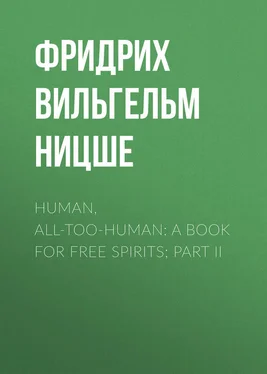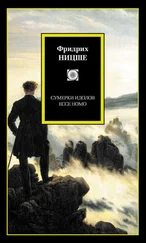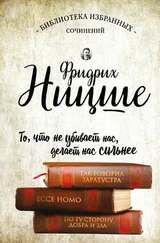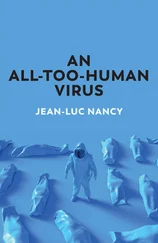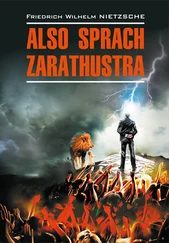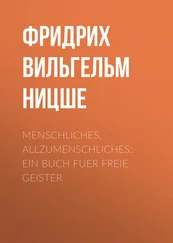Фридрих Ницше - Human, All-Too-Human - A Book For Free Spirits; Part II
Здесь есть возможность читать онлайн «Фридрих Ницше - Human, All-Too-Human - A Book For Free Spirits; Part II» — ознакомительный отрывок электронной книги совершенно бесплатно, а после прочтения отрывка купить полную версию. В некоторых случаях можно слушать аудио, скачать через торрент в формате fb2 и присутствует краткое содержание. Жанр: Философия, literature_19, foreign_antique, foreign_prose, на английском языке. Описание произведения, (предисловие) а так же отзывы посетителей доступны на портале библиотеки ЛибКат.
- Название:Human, All-Too-Human: A Book For Free Spirits; Part II
- Автор:
- Жанр:
- Год:неизвестен
- ISBN:нет данных
- Рейтинг книги:3 / 5. Голосов: 1
-
Избранное:Добавить в избранное
- Отзывы:
-
Ваша оценка:
- 60
- 1
- 2
- 3
- 4
- 5
Human, All-Too-Human: A Book For Free Spirits; Part II: краткое содержание, описание и аннотация
Предлагаем к чтению аннотацию, описание, краткое содержание или предисловие (зависит от того, что написал сам автор книги «Human, All-Too-Human: A Book For Free Spirits; Part II»). Если вы не нашли необходимую информацию о книге — напишите в комментариях, мы постараемся отыскать её.
Human, All-Too-Human: A Book For Free Spirits; Part II — читать онлайн ознакомительный отрывок
Ниже представлен текст книги, разбитый по страницам. Система сохранения места последней прочитанной страницы, позволяет с удобством читать онлайн бесплатно книгу «Human, All-Too-Human: A Book For Free Spirits; Part II», без необходимости каждый раз заново искать на чём Вы остановились. Поставьте закладку, и сможете в любой момент перейти на страницу, на которой закончили чтение.
Интервал:
Закладка:
Envy with or without a Mouthpiece. – Ordinary envy is wont to cackle when the envied hen has laid an egg, thereby relieving itself and becoming milder. But there is a yet deeper envy that in such a case becomes dead silent, desiring that every mouth should be sealed and always more and more angry because this desire is not gratified. Silent envy grows in silence.
Anger as a Spy. – Anger exhausts the soul and brings its very dregs to light. Hence, if we know no other means of gaining certainty, we must understand how to arouse anger in our dependents and adversaries, in order to learn what is really done and thought to our detriment.
Defence Morally more Difficult than Attack. – The true heroic deed and masterpiece of the good man does not lie in attacking opinions and continuing to love their propounders, but in the far harder task of defending his own position without causing or intending to cause bitter heartburns to his opponent. The sword of attack is honest and broad, the sword of defence usually runs out to a needle point.
Honest towards Honesty. – One who is openly honest towards himself ends by being rather conceited about this honesty. He knows only too well why he is honest – for the same reason that another man prefers outward show and hypocrisy.
Coals of Fire. – The heaping of coals of fire on another's head is generally misunderstood and falls flat, because the other knows himself to be just as much in the right, and on his side too has thought of collecting coals.
Dangerous Books. – A man says: “Judging from my own case, I find that this book is harmful.” Let him but wait, and perhaps one day he will confess that the book did him a great service by thrusting forward and bringing to light the hidden disease of his soul. – Altered opinions alter not at all (or very little) the character of a man: but they illuminate individual facets of his personality, which hitherto, in another constellation of opinions, had remained dark and unrecognisable.
Simulated Pity. – We simulate pity when we wish to show ourselves superior to the feeling of animosity, but generally in vain. This point is not noticed without a considerable enhancement of that feeling of animosity.
Open Contradiction often Conciliatory. – At the moment when a man openly makes known his difference of opinion from a well-known party leader, the whole world thinks that he must be angry with the latter. Sometimes, however, he is just on the point of ceasing to be angry with him. He ventures to put himself on the same plane as his opponent, and is free from the tortures of suppressed envy.
Seeing our Light Shining. – In the darkest hour of depression, sickness, and guilt, we are still glad to see others taking a light from us and making use of us as of the disk of the moon. By this roundabout route we derive some light from our own illuminating faculty.
Fellowship in Joy. 5– The snake that stings us means to hurt us and rejoices in so doing: the lowest animal can picture to itself the pain of others. But to picture to oneself the joy of others and to rejoice thereat is the highest privilege of the highest animals, and again, amongst them, is the property only of the most select specimens – accordingly a rare “human thing.” Hence there have been philosophers who denied fellowship in joy.
Supplementary Pregnancy. – Those who have arrived at works and deeds are in an obscure way, they know not how, all the more pregnant with them, as if to prove supplementarily that these are their children and not those of chance.
Hard-hearted from Vanity. – Just as justice is so often a cloak for weakness, so men who are fairly intelligent, but weak, sometimes attempt dissimulation from ambitious motives and purposely show themselves unjust and hard, in order to leave behind them the impression of strength.
Humiliation. – If in a large sack of profit we find a single grain of humiliation we still make a wry face even at our good luck.
Extreme Herostratism. 6– There might be Herostratuses who set fire to their own temple, in which their images are honoured.
A World of Diminutives. – The fact that all that is weak and in need of help appeals to the heart induces in us the habit of designating by diminutive and softening terms all that appeals to our hearts – and accordingly making such things weak and clinging to our imaginations.
The Bad Characteristic of Sympathy. – Sympathy has a peculiar impudence for its companion. For, wishing to help at all costs, sympathy is in no perplexity either as to the means of assistance or as to the nature and cause of the disease, and goes on courageously administering all its quack medicines to restore the health and reputation of the patient.
Importunacy. – There is even an importunacy in relation to works, and the act of associating oneself from early youth on an intimate footing with the illustrious works of all times evinces an entire absence of shame. – Others are only importunate from ignorance, not knowing with whom they have to do – for instance classical scholars young and old in relation to the works of the Greeks.
The Will is Ashamed of the Intellect. – In all coolness we make reasonable plans against our passions. But we make the most serious mistake in this connection in being often ashamed, when the design has to be carried out, of the coolness and calculation with which we conceived it. So we do just the unreasonable thing, from that sort of defiant magnanimity that every passion involves.
Why the Sceptics Offend Morality. – He who takes his morality solemnly and seriously is enraged against the sceptics in the domain of morals. For where he lavishes all his force, he wishes others to marvel but not to investigate and doubt. Then there are natures whose last shred of morality is just the belief in morals. They behave in the same way towards sceptics, if possible still more passionately.
Shyness. – All moralists are shy, because they know they are confounded with spies and traitors, so soon as their penchant is noticed. Besides, they are generally conscious of being impotent in action, for in the midst of work the motives of their activity almost withdraw their attention from the work.
A Danger to Universal Morality. – People who are at the same time noble and honest come to deify every devilry that brings out their honesty, and to suspend for a time the balance of their moral judgment.
The Saddest Error. – It is an unpardonable offence when one discovers that where one was convinced of being loved, one is only regarded as a household utensil and decoration, whereby the master of the house can find an outlet for his vanity before his guests.
Love and Duality. – What else is love but understanding and rejoicing that another lives, works, and feels in a different and opposite way to ourselves? That love may be able to bridge over the contrasts by joys, we must not remove or deny those contrasts. Even self-love presupposes an irreconcileable duality (or plurality) in one person.
Signs from Dreams. – What one sometimes does not know and feel accurately in waking hours – whether one has a good or a bad conscience as regards some person – is revealed completely and unambiguously by dreams.
Читать дальшеИнтервал:
Закладка:
Похожие книги на «Human, All-Too-Human: A Book For Free Spirits; Part II»
Представляем Вашему вниманию похожие книги на «Human, All-Too-Human: A Book For Free Spirits; Part II» списком для выбора. Мы отобрали схожую по названию и смыслу литературу в надежде предоставить читателям больше вариантов отыскать новые, интересные, ещё непрочитанные произведения.
Обсуждение, отзывы о книге «Human, All-Too-Human: A Book For Free Spirits; Part II» и просто собственные мнения читателей. Оставьте ваши комментарии, напишите, что Вы думаете о произведении, его смысле или главных героях. Укажите что конкретно понравилось, а что нет, и почему Вы так считаете.
